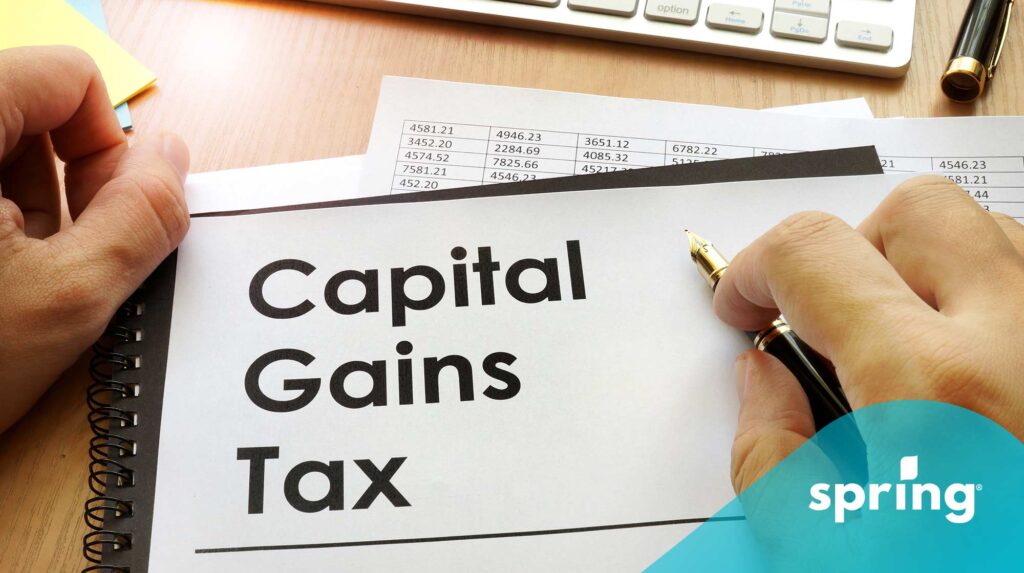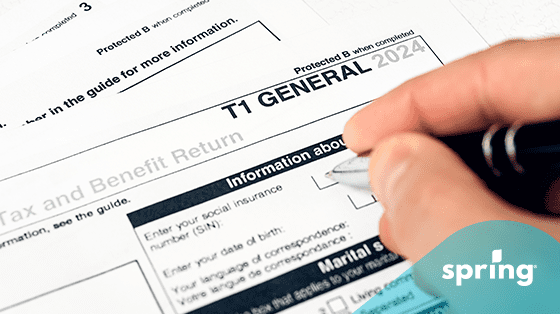Before you could claim the tax credit on your income taxes, you had to verify that your expenses were eligible for the credit. Even though the credit isn’t active anymore, you can still claim funds for any visits made before 2023 that you haven’t claimed yet, as well as other deductions through the Income Tax Act.
How the Ontario Staycation Tax Credit Worked
With this credit, you could claim up to 20% of your eligible accommodation expenses. For individuals, you could claim up to $1,000, and for families, you could claim up to $2,000. So, while you could get up to $400 for families, you could get up to $200 for individuals.
For this credit, you didn’t have to spend all of your funds on one trip. You could actually claim more than one trip as long as the funds didn’t exceed the maximum amount.
Eligibility For The Tax Credit
In order to be eligible for this credit, you had to have had eligible expenses before December 31, 2022. It’s important to remember that only one person per family could claim the credit. You can claim eligible expenses for your common-law partner, spouse, and eligible children.
The expenses that were eligible for this credit were:
- Hotels
- Motels
- Resorts or lodges
- Bed and breakfasts
- Cottages
- Campgrounds
- Vacation rental properties
- Accommodation portions of tour package expenses
There are also some other requirements that the expenses must meet. First, the expense must be yours. You or an eligible family member must have paid for the expense, but you couldn’t have been reimbursed. The expense must also have been incurred for a personal trip; business trips don’t count.
Just like with any other expenses, you had to have a paper trail in order to claim the expenses. The receipts had to have a break down of the different costs, the location, the name of the person paying for the accommodation and the GST/HST amount. The last requirement is that the accommodation you claimed must be registered for the Goods and Services Tax or the Harmonized Sales Tax.
How To Claim The Tax Credit
How you claimed this tax credit depended on how you filed your taxes. If you filed them with the paper Canadian income tax and benefit forms, then you have to fill in the expenses and attach your receipts. If you filed your taxes online, then you could just fill in your eligible expenses. You wouldn’t have had to attach your receipts, but you would have to keep them in case they’re requested.
Why Was This Credit Eliminated?
This credit was originally established as a temporary tax credit and after the 2022 tax year it was never renewed. This means that any expenses that were maid in 2023 and 2024 can’t be claimed on your tax return but ones from 2022 and previous tax years can still be claimed.
Other Ways to Save Money on Your Taxes
If you live in Ontario, there are plenty of other ways to save money on your taxes, not including the Alternative Minimum Tax, with the Canada Revenue Agency now that the Staycation Tax Credit isn’t available.
If you live in Ontario, you were eligible for the new Canada Carbon Rebate until April 2025, which was available to those who met the income requirements for the rebate, as well as Canadian-controlled private corporations, which are also taxable Canadian corporations. There are other refundable tax credits as well as non-refundable tax credits.
Capital Gains
Another way to save is with taxable capital gains. Capital gains are taxed differently that traditional interest incomes. When you claim your net capital gains realized, you’re taxed based on the current capital gains inclusion rate which is half. This means that only half of your capital gains will be taxed. However, if your eligible capital gains exceed $250,000 then your inclusion rate jumps from half to two thirds.
In Canada, income made off of central bank digital currencies from crypto asset service providers and crypto asset transactions is considered to be part of your current year capital gains.
Another way you incur Capital Gains in Canada is when you sell a property that isn’t your primary residence. How much capital gains are considered is based on the fair market value of the property and how much you’ve made off of the sale. This fair market value consideration affects how much you pay in capital gains. There’s also the lifetime capital gains exception that you may qualify for.
Charitable Donations
In Canada, you can get a federal tax credit when you make charitable donations to companies on a not-for-profit basis, which is known as the charitable donation tax credit. For the first $200 you donate, your tax credit is 15%. For donation amounts that exceed $200, then the tax credit increases to 29%. Depending on where you live, you could also get a provincial tax credit.
Depreciable Property
In Canada, you can claim net capital losses, loss restriction rules applicable, as well as capital gains. However, you can’t claim capital losses on depreciable property. For this, you would claim a terminal loss if it applies. An example of depreciable property includes data network infrastructure equipment. However, along with that depreciable property, you can also claim any financing expenses incurred. That said, there are interest deductibility limits.
Employee Stock Option Deduction
You can use these if you get the option to purchase securities or stock options through your employer. You can get these securities under an options agreement, which can either be shares of a corporation or units of a mutual fund trust or mutual fund corporation.
When you choose to do this and purchase them under fair market value, you can then get a taxable benefit through your employment. How much you get for the benefit is based on the difference between what you paid and what the fair market value was at the time of purchase. These employee stocks can be held in Employee Ownership Trusts.
Enhanced GST Rental Rebate
This benefit only applies to those building rental housing to help incentivize builders. This is due to the current lack of rental units available. How it works is it takes the GST rebate on certain new rental builds from 35% to 100% giving more tax relief to builders.
Goods and Services Tax Credit
This is a tax-free payment that is given quarterly to those in Canada who have low to moderate incomes. This helps to offset any GST and HST you pay. Depending on where you live, other credits could be included in these payments. The great thing about this payment, though, is that you don’t have to apply. If you qualify, you’re automatically enrolled when you file your tax return.
Guaranteed Income Supplement
The Guaranteed Income Supplement isn’t a tax credit. However, you can get it if you meet the requirements and file your annual tax return. In order to receive this benefit, you must be at least 65 years old and be receiving the Old Age Security pension. You also have to meet the income requirements in order to get your approval.
Federal Logging Tax Credit
This federal government credit is only available to those who paid logging tax for any logging operations performed in the province. How much you get for the credit is based on whichever is less: 66.6667% of logging tax paid for the year to the province or 6.6667% of your net logging income for the year in the province.
Energy Storage
The Clean Technology Investment Tax Credit is available for certain types of clean technology purchases. These include:
- Stationary electricity storage equipment that doesn’t use fossil fuels
- Equipment that makes energy using solar, wind or water
- Solar heating equipment
- Air-source heat pumps
- Ground-source heat pumps
- Non-road zero-emission vehicles, as well as equipment used for charging and refuelling and other things common on the electrical vehicle supply chain
- Concentrated solar energy equipment
- Equipment used for making electrical or heat energy from geothermal energy unless it’s part of a system that extracts fossil fuels for sale
- Small modular nuclear reactors
Businesses can also claim the Carbon Capture, Utilization, and Storage Investment Tax Credit.
Workers Compensation Payments
If you receive workers’ compensation payments, it’s important to know that this income isn’t taxable, meaning it’s exempt income. However, you do still have to report it. These types of payments include:
- Wage-loss replacement for time lost from employment due to injury or condition
- Wage-loss replacement income for those injured at work and have a partial, total, temporary, or even permanent disability
- Compensation for future loss for a permanent injury or temporary disability
- Survivor benefits
- Wage-loss replacement income to a surviving spouse or common-law partner
Final Thoughts
When it comes to the Ontario Staycation Tax Credit, you may not be able to make any future claims, but you can still claim any unclaimed amounts from 2022 or earlier if they’re eligible. However, this credit is no longer available for new purchases. That said, there are other personal income tax measures you can take.
If you live in Ontario, there are other ways that you can save money on your taxable income and reduce your tax payable as a tax debtor. While you may not be eligible for all of these credits, a few of them can help you. These aren’t even all of them, either. There are many more federal and provincial existing deductions out there, as well as other tax attributes. To find these, you can look through the Income Tax Act as well as other tax statutes, including the Excise Tax Act.








